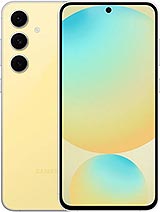Lava Blaze Amoled 2 alternatives
Tap above to see alternatives.
OnePlus 13s alternatives
Tap above to see alternatives.
Lava Blaze Amoled 2

Lava Blaze Amoled 2
-
Dimensity 7060
6 nm
-
5000 mAh
33W
-
6.67"
1080 x 2400 pixels
-
50 MP
1080p@30fps
-
Specs

OnePlus 13s

OnePlus 13s
-
Snapdragon 8 Elite
3 nm
-
5850 mAh
80W
-
6.32"
1216 x 2640 pixels
-
50 MP
4K@30/60fps
-
Specs

2x2.6 GHz Cortex-A78
6x2.0 GHz Cortex-A55
2x4.32 GHz Oryon V2 Phoenix L
6x3.53 GHz Oryon V2 Phoenix M
12GB 512GB (UFS 4.0)
(wide), AF
Auxiliary lens
Sony LYT-700, f/1.8, 24mm (wide), 1/1.56", 1.0µm, multi-directional PDAF, OIS
50 MP
Samsung S5KJN5, f/2.0, (telephoto), 1/2.75", 0.64µm, 2x optical zoom, PDAF
1080p@30/60/240fps
OmniVision OV32C, f/2.0, 21mm (wide), 1/3.1", 0.7µm, AF
1080p@30fps
SIM1: Nano, SIM2: Nano
9 5G bands
n1, n3, n5, n8, n28, n40, n41, n77, n78
13 5G bands
n1, n3, n5, n8, n26, n28, n38, n40, n41, n48, n66, n77, n78
In this performance comparison, the OnePlus 13s with its Qualcomm Snapdragon 8 Elite (3nm) performs better than the Lava Blaze Amoled 2 with the Mediatek Dimensity 7060 (6nm), thanks to superior chipset efficiency.
OnePlus 13s offers 4 years of OS updates, whereas Lava Blaze Amoled 2 provides 1 years. For security updates, OnePlus 13s offers 6 years of support compared to Lava Blaze Amoled 2's 2 years.
Both Lava Blaze Amoled 2 and OnePlus 13s feature AMOLED displays, offering vibrant colors and deeper blacks. Both smartphones offer the same 120 Hz refresh rate. OnePlus 13s also boasts a brighter screen with 1600 nits of peak brightness, enhancing outdoor visibility. Notably, OnePlus 13s offers a higher screen resolution, resulting in sharper visuals and more detailed content.
OnePlus 13s features a larger 5850 mAh battery, potentially delivering better battery life. OnePlus 13s also supports faster wired charging at 80W, compared to 33W on Lava Blaze Amoled 2.
OnePlus 13s offers better protection against water and dust with an IP65 rating.
- Lava Blaze Amoled 2 – Check price here
- OnePlus 13s – Check price here
¹ Scores can vary even with the same chipset due to RAM, thermals, and software optimization.










